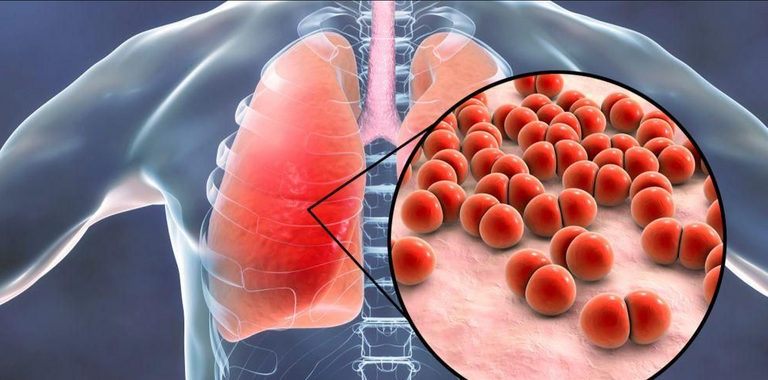
This Is The Corona Virus Novel Form Or Corona Virus Causes Wuhan Pneumonia
The Corona virus first infected humans around the middle of the 1960s.
This virus is called the Corona virus because the top surface resembles a crown, has the zoonotic nature of transmission from animals to humans.
The four main subgroups of the Corona virus include alpha, beta, gamma and delta.
Common Corona viruses cause infections in humans including alpha coronavirus (229E, NL63) and beta coronavirus (OC43, HKU1).
Another Corona virus that infects humans is MERS-CoV (beta coronavirus which causes Middle East Respiratory Syndrome).
Reported for the first time in Saudi Arabia in 2012 which caused illness in people who have or lived near the Arabian peninsula.
SARS-CoV (beta coronavirus which causes Severe acute respiratory syndrome) which was recognized in 2002 in China caused a pandemic in the world in 2002-2003, but since 2004 no cases of SARS-CoV infection have been found.
And the latter is recognized by the Coronavirus Novel (2019-nCoV).
World Health Organization on December 31, 2019 received a report of a case of severe pneumonia with no known cause in Wuhan City, Hubei Province, China.
Chinese scientists on January 7 succeeded in identifying the cause of infection, namely the corona virus novel (2019-nCoV).
"See Also :HP LaserJet Pro M404dn Printer
This virus has caused an outbreak in China and 2019-nCoV infected cases have been reported in several other countries. (CDC, WHO)
Confirmed cases of 2019-N-CoV infection are increasing both in China (Wuhan, Beijing, Shanghai, Guangdong, Senzhen, etc.) as well as other countries, namely Thailand, Hong Kong, Macau, Vietnam, Japan, Singapore and finally in America.
Data on the number of confirmed confirmed patients can be seen from the table below.
Symptoms that arise in the 2019-nCoV infection include fever, weakness, dry cough, difficulty breathing or difficulty breathing and some conditions are found to be more severe, namely in the elderly or have other comorbidities, have a higher risk to aggravate the condition.
Severe cases of infection can cause pneumonia, severe acute respiratory syndrome, kidney failure and death.
Transmission is predicted to spread through exhalation and the possibility of transmission from human to human cannot be ruled out even though there is no definitive evidence.
The incubation period is estimated from 2-7 days and can be up to 14 days from contracting to causing illness.
Criteria for patients suspected of being infected with 2019-nCoV are fever, lower respiratory tract complaints such as coughing and shortness of breath are obtained.
Within the last 14 days before the complaint appeared a history of travel to Wuhan or close contact with a patient suspected of being infected with 2019 nCoV or close contact with the laboratory where the patient's examination was confirmed with 2019-nCoV.
Complaints of fever are sometimes not found in cases of very young patients, elderly patients, immunocompromised, and have taken fever-lowering drugs.
Examination for diagnosis of 2019 nCoV with real time RT PCR.
Samples taken from the airways are nasopharyngeal and oropharyngeal swabs, sputum and endotracheal aspiration in patients with severe infection cases, blood serum for serological tests, samples when acute and when healing and other samples in cases that have not been resolved (blood and urine culture).
"See Also :HP Laser MFP 137fnw Printer
Regarding the prevention of Wuhan pneumonia that is currently outbreaked there is currently no vaccine available.
In response to this, the Indonesian Lung Doctors Association has advised the public a number of things in dealing with this infection, including:
So that people do not panic
People remain vigilant, especially when experiencing fever symptoms, coughing with breathing difficulties to immediately seek help to the nearest hospital
Health advice
Perform routine hand hygiene, especially before handling the mouth, nose and eyes; as well as after holding a public installation
Wash your hands with water and liquid soap and rinse for at least 20 seconds. Wash with water and dry with a towel or disposable paper. If there is no hand washing facility, you can use 70-80% alcohol handrub
Cover your mouth and nose with tissue when sneezing or coughing
- When you have respiratory symptoms, wear a mask and seek treatment at a health care facility
- Travel advice
Avoid touching animals or birds
Avoid visiting wet markets, farms or live animal markets
Avoid close contact with patients who have symptoms of respiratory tract infections
Comply with food safety instructions and hygiene rules
If health feels uncomfortable when in an outbreak area especially fever or cough, wear a mask and seek health services
After returning from the outbreak area, consult a doctor if there are symptoms of fever or other symptoms and notify the doctor of travel history and use a mask to prevent transmission of the disease (WHO source, CDC, PDPI)
Congratulations @malekazis! You have completed the following achievement on the Steem blockchain and have been rewarded with new badge(s) :
You can view your badges on your Steem Board and compare to others on the Steem Ranking
If you no longer want to receive notifications, reply to this comment with the word
STOPVote for @Steemitboard as a witness to get one more award and increased upvotes!